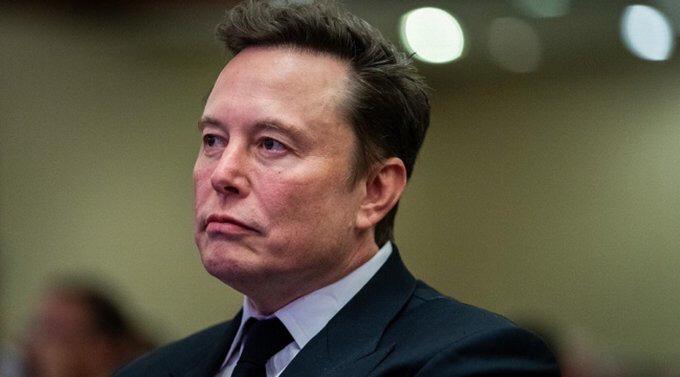In a move that has sparked widespread discussion, Elon Musk, the billionaire entrepreneur and CEO of Tesla, SpaceX, and X Corp, has officially stepped down from his high-profile role as a special government employee in the Trump administration. Musk, who served as co-leader of the Department of Government Efficiency (DOGE) alongside Vivek Ramaswamy, announced his departure on May 29, 2025, marking the end of his 130-day term. The announcement, confirmed by a White House official, has left political and business circles buzzing about the implications of his exit and the future of the DOGE initiative.
Musk’s foray into government began with his appointment to lead DOGE, a temporary advisory body created by President Donald Trump to streamline federal operations and slash government spending. Launched with much fanfare, DOGE was tasked with identifying inefficiencies, reducing bureaucratic red tape, and proposing cuts to the federal budget. Musk, known for his disruptive approach in industries like electric vehicles and space exploration, brought his signature intensity to the role, promising to “make government lean and mean.”
The department’s name, a nod to the cryptocurrency Dogecoin that Musk has long championed, reflected his unconventional style. Alongside Ramaswamy, a former biotech entrepreneur and vocal conservative, Musk set out to challenge the status quo in Washington. Their mandate was ambitious: to deliver recommendations by July 4, 2025, for a sweeping overhaul of federal agencies, with the goal of saving taxpayers billions. Early reports suggested DOGE was eyeing significant reductions, including the elimination of entire agencies and thousands of federal jobs.
Musk’s involvement was a lightning rod from the start. Supporters hailed his outsider perspective and track record of innovation, believing he could shake up a bloated bureaucracy. Critics, however, questioned whether a billionaire with no prior government experience could navigate the complexities of federal policy without causing chaos. His tenure was marked by bold proposals, heated debates, and a polarizing presence that kept DOGE in the headlines.
Why Musk Stepped Down
Musk’s departure was not entirely unexpected, as his role was defined as a fixed 130-day term under the special government employee designation. However, the timing and context of his exit have fueled speculation. In a post on X, Musk expressed gratitude to President Trump for the opportunity, stating, “It has been an honor to serve the American people and work toward a more efficient government. The DOGE mission will continue to shape the future, and I’m proud of what we’ve started.” The White House confirmed that Musk’s term concluded as planned, but sources indicate deeper tensions may have played a role.
One flashpoint was Musk’s vocal criticism of a recent Trump-backed spending bill, which he argued undermined DOGE’s mission. The bill, intended to avert a government shutdown, included provisions that Musk and Ramaswamy publicly opposed, claiming it perpetuated wasteful spending. Musk took to X to rally opposition, warning that the bill would “torpedo” DOGE’s efforts to cut costs. His outspokenness reportedly strained relationships with some administration officials, who viewed his approach as divisive.
Beyond policy disagreements, Musk’s exit coincides with mounting challenges in his business empire. Tesla, a cornerstone of his wealth, has faced declining profits amid intense competition in the electric vehicle market. Recent reports highlight a 40% drop in Tesla’s stock value over the past year, with analysts pointing to supply chain issues and softening demand. Meanwhile, SpaceX’s ambitious Starship program has encountered delays, and X Corp continues to navigate controversies over content moderation and advertiser pullbacks. Some speculate that Musk’s departure allows him to refocus on his companies during a turbulent period.
Despite its short lifespan, DOGE made significant waves. Under Musk’s leadership, the department proposed eliminating several federal agencies, including the Department of Education and the Consumer Financial Protection Bureau, arguing they duplicated state-level functions or stifled innovation. DOGE also targeted outdated regulations, with Musk advocating for a “regulatory bonfire” to free up resources for economic growth. These proposals resonated with fiscal conservatives but sparked fierce backlash from public sector unions and progressive lawmakers, who warned of devastating impacts on federal workers and vulnerable populations.
One of DOGE’s most controversial moves was its push to reduce the federal workforce by up to 30%, a plan that critics labeled as draconian. Protests erupted in Washington, with federal employees and advocacy groups accusing Musk of prioritizing corporate interests over public welfare. Supporters, however, argue that DOGE’s recommendations laid the groundwork for a leaner, more accountable government, even if implementation remains uncertain.
Musk’s data-driven approach was a hallmark of his tenure. He reportedly leveraged AI tools, including insights from Grok (developed by his company xAI), to analyze federal spending patterns and identify inefficiencies. This tech-forward strategy earned praise from Silicon Valley but raised concerns about transparency, with some lawmakers demanding clarity on how DOGE’s recommendations were formulated.
Musk’s exit does not mark the end of DOGE, which Ramaswamy will continue to lead until its mandate expires. The department is expected to deliver its final report by July 4, 2025, though questions remain about how many of its proposals will be adopted. Trump has signaled strong support for DOGE’s mission, but political realities—such as resistance from Congress and public opinion—may temper its impact.
For Musk, the return to private life offers a chance to address pressing challenges at Tesla, SpaceX, and X Corp. Industry observers expect him to double down on innovation, particularly in autonomous driving and space exploration, while continuing to wield influence through his massive X platform. His brief stint in government has only amplified his polarizing persona, with supporters viewing him as a visionary reformer and detractors accusing him of overstepping his expertise.
Elon Musk’s departure from the Trump administration closes a chapter in one of the most unconventional government experiments in recent memory. His tenure at DOGE embodied his larger-than-life approach: bold, disruptive, and unapologetic. While he leaves behind a blueprint for government efficiency, the path forward remains fraught with political and practical hurdles.
As Washington digests the implications of Musk’s exit, the nation watches to see whether DOGE’s vision will reshape the federal landscape or fade into the annals of political ambition. For Musk, the end of this chapter is likely just the beginning of his next big move, whether on Earth or beyond.
Join our Whatsapp channel to stay updated always!


